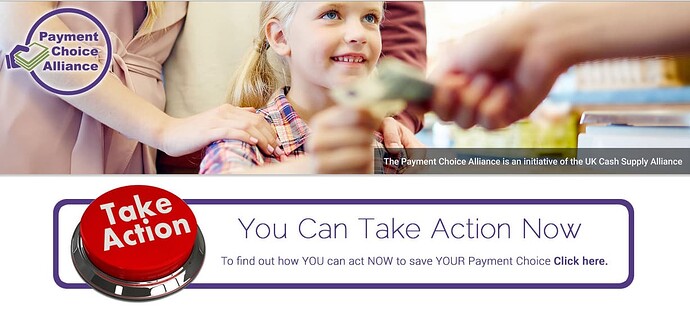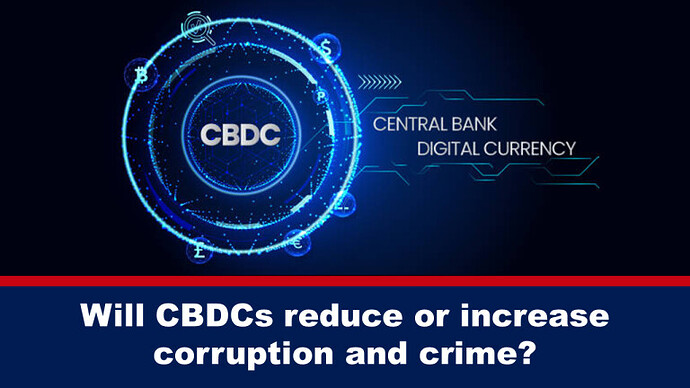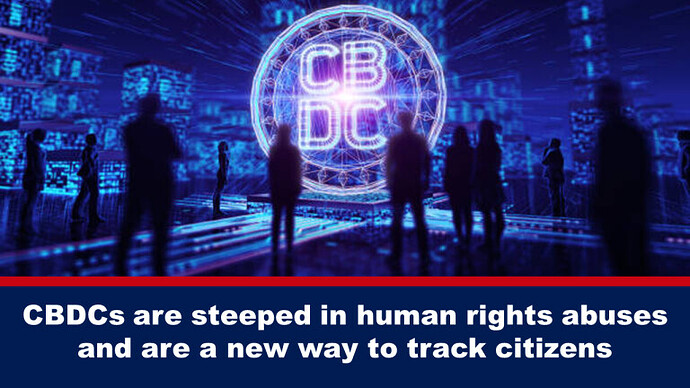CBDCs: why their future is not so bright
CBDCs are an expression of bankers' fantasy of total control. Their first pilot program lasted 108 days and ended in total failure, lost elections and prison time.

ALEX KRAINER
7 OCT 2023
Will the dreaded Central Bank Digital Currencies (CBDCs) become a thing? Will they be as awful as the ruling parasite class is planning? Will they be able to enforce our compliance with whatever rule they choose to impose, oppressing us under a draconian system of arbitrary restrictions and prohibitions? Spoiler alert: they won’t.

Damn! It did look great on paper, tho.
Over the last few months I was asked about CBDCs in a number of podcast interviews. The questions generally reflect the unease and anxiety about the prospect of finding ourselves in a totalitarian dystopia. With the CBDCs, the bankers would presumably have the ability to 'see' every purchase we make and condition our access to money through a permits system enabling them to micromanage any and all of our transaction choices in real time. This is what they mean when they say, "programmable" CBDCs.
The plan is far too ambitious
But programmable CBDCs will almost certainly fail, for a number of reasons. First, development of a viable system of administering people's accounts with all the permitting rules, quotas, restrictions and challenges/appeals will prove far too ambitious a project, to say nothing about managing its evolution and keeping it secure. While such systems are conceptually possible, in all likelihood they'll degenerate into an unmanageable morass.
Thank you for reading! This post is public so feel free to share it.
Share
I recently wrote about the non-trivial challenges of developing and maintaining well-functioning systems, which are related also to the CBDC architecture (see "West's terminal technology problem "). Second, if you impose on the people a system of exchange that's too complicated and too restrictive, they will naturally create and gravitate to grey and black markets.
These tend to develop very rapidly, offering close to all of the goods and services that meet people’s needs which are unmet in the state-sanctioned markets. Black markets then become irresistibly attractive since they'll function as true free and competitive marketplaces, unencumbered by governments' bureaucratic red tape. They’ll be attractive to consumers, and profitable for entrepreneurs.
Black markets pay no tax
The third problem is that the authorities will not be able to collect any taxes on black market transactions which will make the government’s fiscal position go from very bad to much, much worse. Once people grow accustomed to, or even dependent on the black markets, they become very difficult to uproot. Enforcement might only work very marginally, but it won't change the outcome.
The authorities' ability to enforce an onerous, restrictive system will easily be overwhelmed by the population's existential need to exchange everyday goods and services they require. Today, nearly half of Venezuela’s economy depends on black markets. In Argentina, they account for about 35% of the GDP, and this is not because the authorities in those nations wished it so: they’re simply powerless to stop it.
Even in the developed world, there’s a limit to what the population will put up with as we saw with Trucker Protests in Canada and the Blade Runners who are dismantling the state’s surveillance system, as it doesn’t conform to the people’s community standards:

Unless the governments and monetary authorities can execute their plans flawlessly and offer a usable, well-functioning monetary system to the people, they will certainly miss their “dangerously narrow window of opportunity” to enforce programmable CBDCs.
The failure of Nigeria’s CBDC pilot program
This, in fact, is what happened in Nigeria, the world's first CBDCs testing ground: it ended in a massive failure. In October 2021, a public referendum was held on the introduction of a CBDC to replace cash. In spite of 99.5% of Nigerians voting against the CBDC, on 25 October 2022, the then president of Nigeria, Muhammadu Buhari issued a decree that the CBDC project would go ahead regardless.
Last December the government moved to eliminate cash altogether. The implementation of Nigeria’s CBDC, the eNaira was extremely important: it was intended as a showcase of success to be replicated in all nations. The project was therefore helped along with the best advice by foreign experts from the International Monetary Fund (IMF), World Economic Forum (WEF) and the Bureau of Industry and Security.
The currency itself would be based on the Hyperledger Fabric, “a platform for distributed ledger solutions underpinned by a modular architecture delivering high degrees of confidentiality, resiliency, flexibility, and scalability,” able to accommodate the complexity and intricacies that exist across an economic ecosystem. That kind of language will get anyone’s confidence pumped! The Hyperledger Foundation even boasts the Bank of International Settlements’ Green Bonds project among its use cases!
Nigeria’s central bank takes the plunge
The governor of the Central Bank of Nigeria (CBN), Godwin Emfiele announced that by the end of January 2023, Nigeria would transition fully from physical cash (naira) to eNaira, the nation's CBDC. This deadline was subsequently extended to February 10. The people of Nigeria had to transfer all their cash holdings to the CBN which would convert them to individual eNaira balances.
When February 10 arrived, about 80% of the people found themselves still with no CBN bank accounts, holding now worthless banknotes and unable to procure the basic necessities of life. Soon, many small businesses that relied on cash payments shut down because their customers ran out of cash and had no more money to pay for their purchases.
On 16 February, violent riots erupted and some state governments filed lawsuits against the central bank, demanding that the bank allow the people the choice to use the new CBDC and the old niara banknotes. Here's how Polish journalist Jan Fijorr described the way Nigerian people sought to adjust to the new situation, adopting an alternative currency (matchsticks in this case) and beginning to form black markets:
“In response to refusals to accept their old cash, invalidated at the end of January, people without bank accounts, legal cash, or any savings resorted to traditional methods: barter and trade credit. Matchstick holders exchanged them for yams with farmers. Soap producers traded for fuel, and small business owners extended longer credit terms to their contractors. Teachers and cleaners from local schools sought help, mainly food, from the families of their students.”
Consequences of failure…
Nigeria's presidential elections were scheduled for 24 February and of course, Muhammadu Buhari was swept out of office. The new president, Bola Ahmed Tinubu restored the validity of the old currency upon his inauguration (on 29 May), and on 10 June, the CBN governor Emfiele was arrested. The government's ill-advised experiment only lasted for 108 days before it collapsed.
Of course, the IMF and WEF advisors will take in their 'lessons learned' and try again in another country, but they will almost certainly fail again. In the process, their track record of failure will pull the rug from under their confidence and they'll find it increasingly harder to find central bankers and government leaders willing to risk political suicide like Nigeria's ex-president Buhari, or prison time like the ex-central bank governor Emfiele.
Granted, the current monetary system is not for the ages and will have to be replaced. However, the central bankers' ambitions to create some form of digital dystopia and gain total control of society are already proving to be delusional fantasies that can’t and won’t be sustainable in the real world. A new monetary system will have to be based on honest, sound money.













